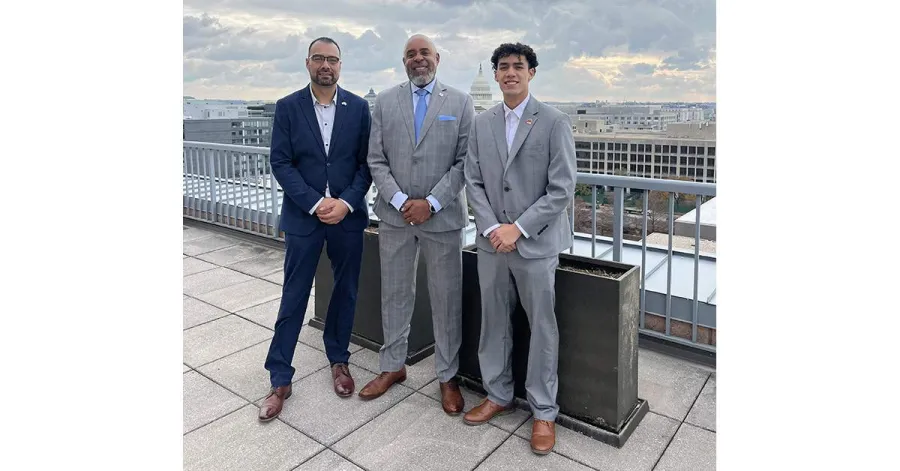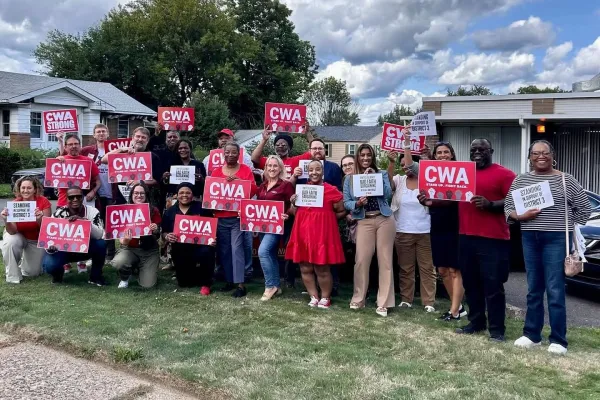A Father and Son Testify Before Congress to the Power of Investment in Union Jobs

Two generations of IUE-CWA members testified before Congress last week about the power of the Inflation Reduction Act’s (IRA) investment in clean jobs to onshore wind energy manufacturing and create the kind of good jobs that a parent can be proud to keep in the family.
Eric Romero Sr. and his son, Eric Romero Jr., members of IUE-CWA Local 81301, traveled from Schenectady, N.Y., to Washington, D.C., to testify before the House Sustainable Energy and Environment Coalition in a roundtable discussion to highlight IRA investments in clean jobs across the country.
Eric Romero Sr. has worked at General Electric (GE) for over a decade. His family has seen employment at GE dwindle from almost 30,000 hourly union workers in the 1970s to barely 700 after decades of bad trade deals and massive offshoring and outsourcing.
With investment through the IRA, GE Vernova is in the process of bringing 200 onshore wind turbine component assembly jobs to the facility in Schenectady. Eric Romero Jr. secured one of those good union jobs to continue his family’s legacy of powering America.
“GE workers in Schenectady have kept the lights on in this country and around the world for over a century. Unfortunately, due to decades of bad trade policy and massive offshoring, we’ve seen thousands of good union jobs leave our facility and devastate our community,” Eric Romero Sr. told the congressional committee. “After years of layoffs and fighting alongside my union to get wind work and investment in our shop, it's amazing to welcome my son and other kids from the community as the next generation of GE union workers. It gives me hope.”

Eric Romero Sr. (left) and his son, Eric Romero Jr. (right), met with IUE-CWA Vice President Carl Kennebrew at CWA headquarters prior to testifying before Congress.
---
This post originally appeared on cwa-union.org.
CWA Local 1040 Announces the Carolyn C. Wade Memorial Scholarship Fund!



